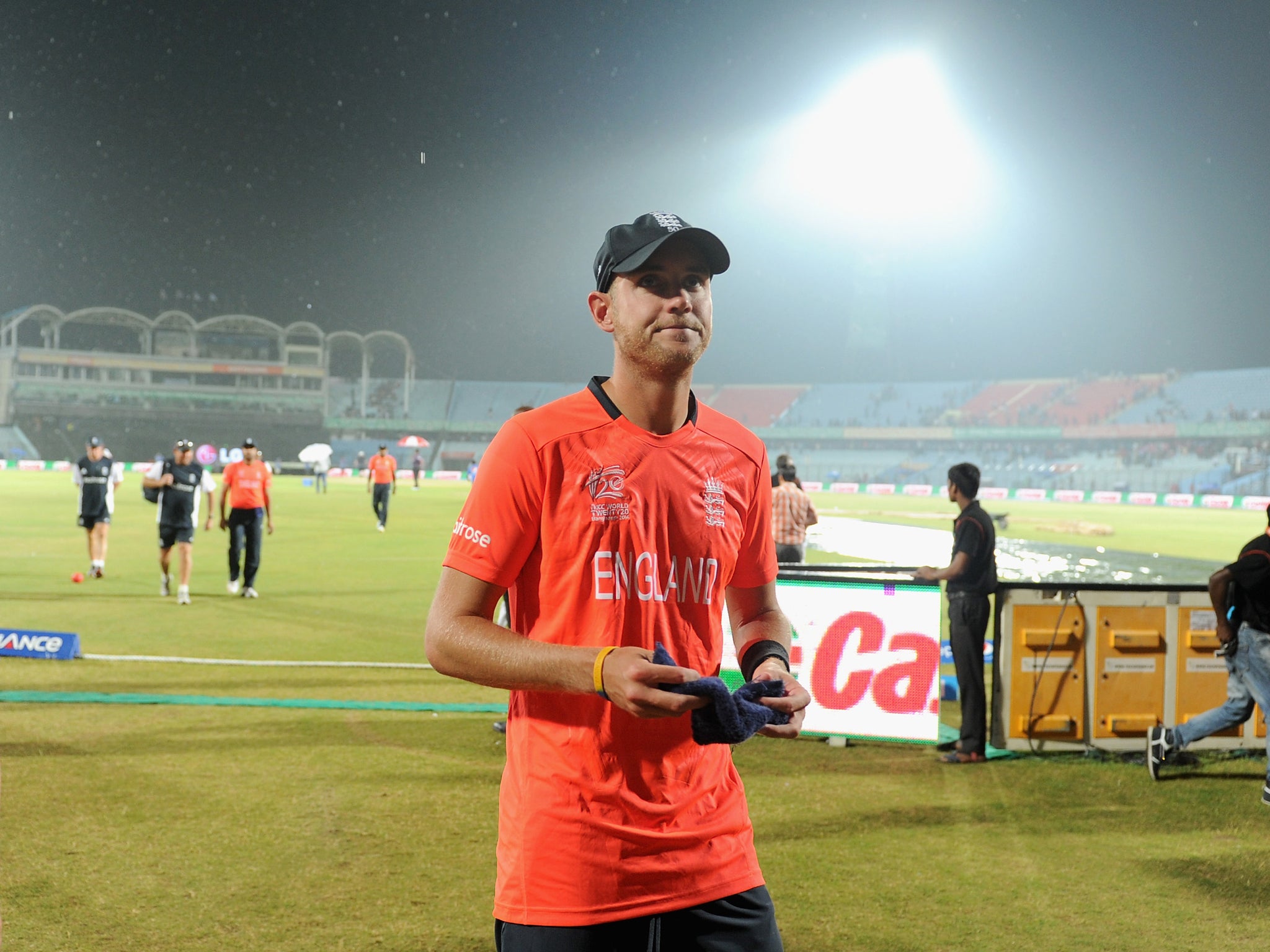World Twenty 20: England anger as umpires try to ride out storm
Broad’s men go down to New Zealand in shortened match after officials keep teams on in thunder, lightning and lashing rain, writes Stephen Brenkley in Chittagong

For England these are the hardest of times. They can barely dare imagine where their next win might come from, they are at sixes and sevens in Twenty20 (and probably every other form of cricket besides) and, as if they were not making enough mistakes of their own, they found the gods and the umpires conspiring against them.
Rain of the extremely heavy variety – and it is being said hereabouts that there may be more where that came from in the next fortnight – curtailed their opening group match of the World Twenty20 against New Zealand. It meant that the Kiwis, thanks largely to an onslaught in the final completed over by Brendon McCullum, himself bordering on cricket deity, won by nine runs under the Duckworth-Lewis system.
Stuart Broad, the England captain, whose bowling conceded the vital runs, was extremely displeased by the turn of events. He described the umpires’ call to keep the game going for six balls while lightning flashed around the ground as “extremely average decision-making”, and said he and McCullum, New Zealand’s captain, had discussed leaving the field.
The fifth over, which meant a match was constituted under T20 regulations, brought 16 runs in all and put New Zealand ahead. There was a definite case for the match to have beeen called off before then with cracks of thunder echoing around the ground and flashes of lightning illuminating the proceedings after the second ball.
McCullum, realising that the umpires were staying on, got on with the job himself, but Broad was understandably bitter afterwards.
“To be as polite as I can be I think it was distinctly average decision- making to keep us on after the first lightning strike after the start of the fifth over,” he said.
“It has given us a loss but it’s not sour grapes, because I think both sides were uncomfortable being out there with lightning around. I asked the umpires for clarity at the end of the game and they said they didn’t see the lightning and didn’t think it was a threat.
“I can guarantee that our team felt it was a threat, and with a batsman pulling away from a delivery I think the batsmen saw it. At the end of the day it’s a game of cricket, and I wouldn’t be putting the safety of the players under threat.”
At the start of the fifth over, the Kiwis were 31 for 1 after Jade Dernbach had lulled Martin Guptill into mistiming a pull to midwicket in the fourth over. By its end they needed to have scored at least 42 to be ahead on Duckworth-Lewis.
McCullum did not score off the first two balls, and on another day might have been caught off the second. To the third, suddenly sensing what the weather was doing, he danced down the wicket, sharply adjusted his shot when he realised that Broad had seen him coming and struck a six over wide midwicket.
The tactics were similar off the next ball. McCullum skipped down and this time edged for four. Then the batsman pulled away as lightning flashed in front of the sightscreen. Broad eventually bowled a superb yorker which the batsman could only dig out.
Everything was on the last ball – the contest and probably its result. The magnificent McCullum turned it into a low full toss which he drilled for six.
Two more balls were possible of a sixth over, by which time it was teeming down, and after they had been delivered everybody scurried for cover.
Earlier, England had made a highly serviceable 172 for 6 after being asked to bat first, following the well-worn dictum about the importance of everybody contributing. Nobody illuminated the innings as lightning did to the skies later but almost all made a valuable contribution. It was a unified effort by a team who have provided a series of discordant performances in the past four months.
The feeling was that the total was around 10 runs short, and another feeling was that England should have made them.
There did not seem to be any cause for concern about rain in the air when New Zealand began their pursuit. That optimism did not last for long. It leaves England probably needing to win their next three group games to qualify for the semi-finals, and little they or the cricketing gods have done so far suggest they can do it.
Luke Wright has become the third player to leave the squad following Joe Root and Ben Stokes. In his place comes Craig Kieswetter, a member of the World Twenty20 winning side. England had some luck then when a group match against Ireland was called off before DL came into play. But that was then, this is now, and the gods have moved their favours elsewhere.
Subscribe to Independent Premium to bookmark this article
Want to bookmark your favourite articles and stories to read or reference later? Start your Independent Premium subscription today.

Join our commenting forum
Join thought-provoking conversations, follow other Independent readers and see their replies